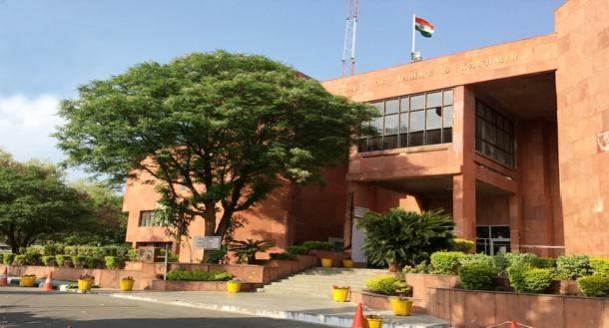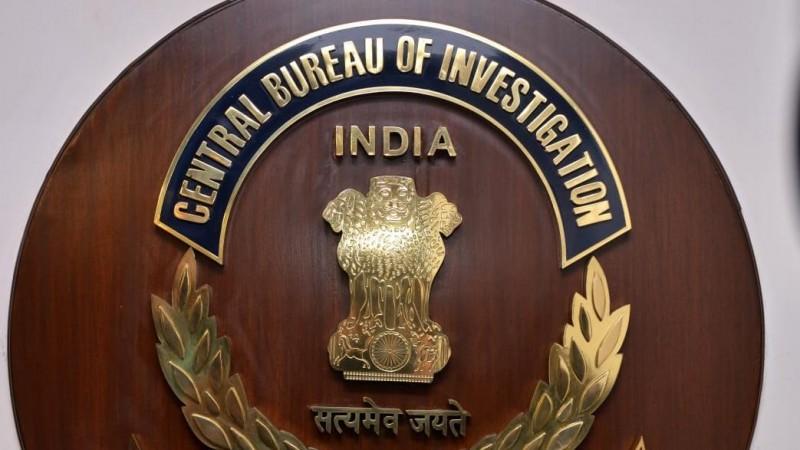The High Court of Jammu and Kashmir and Ladakh on Monday fixed the next hearing on September 6, 2021, to hear review petitions and other applications filed in the much-publicized Rs 25,000-crore Roshni land scam.
A division bench of the High Court of J&K and Ladakh comprising chief justice Pankaj Mittal and justice Puneet Gupta, while hearing 62 review petitions and other applications on the scam, fixed September 6, 2021, as the next hearing of all related cases.
Although advocates who appeared for the case were not ready to speak on developments during the hearing, Ankur Sharma, the main petitioner in the case, shared some details on social media.
"CBI registers 17 FIRs. Updates HC about Non-Cooperation of Revenue Officials. Chief Justice asks Advocate General: What have you done about Implementation of the Judgment?" advocate Ankur Sharma tweeted from his Twitter handle.

Reports said that CBI filed its status report today under sealed cover. As per directions of the High Court, the CBI has to file a status report after every eight weeks to inform the Court about the progress in the investigation.
"Today CBI filed its latest status report," reports said and added that CBI has filed 17 FIRs after the High Court's historical judgment in October 2020, and it has completed investigation in four cases.

CBI probe ordered on October 9, 2020
In a historic judgment on October 9, 2020, the J&K High Court had ordered the Central Bureau of Investigation (CBI) to take over the probe of the Rs 25,000-Crore Roshni land scam in Jammu and Kashmir. Court had also declared all allotments made under the legislation void from the beginning.
Hearing a Public Interest Litigation (PIL), a division bench of the Court headed by then Chief Justice Gita Mittal and justice Rajesh Bindal, had declared the legislation unconstitutional.
The Court had asked the Chief Secretary of J&K to ensure uninterrupted investigation, directed to take action against those officers in whose tenures the encroachments had happened.
It was mentioned in the order that all Deputy Commissioners and Divisional Commissioners will be held for contempt of court if they do not cooperate with the investigation.
Main points of High Court's judgment
• CBI to conduct a probe of Rs 25,000 Crore Roshni land scam.
• All allotments under the Roshni scheme be canceled and be declared invalid.
• Roshni Act was also declared unconstitutional.
• CBI to file a status report every 8 weeks before the Court.
• The Chief Secretary was made accountable for the uninterrupted investigation.
• The investigation was also ordered against officers in whose time encroachments happened.
• Divisional Commissioners and Deputy Commissioners will be held guilty of contempt in case they do not cooperate in the investigation.
Court had already directed the government to submit the list of all beneficiaries of the controversial scheme
A Division Bench (DB) of J&K High Court earlier had directed the J&K government to submit the list of all beneficiaries of the controversial Roshni scheme.
The DB had directed the J&K government to place on record a complete list of all persons who were benefitted under this scheme. The government was directed to furnish the list within a time of two-week.
What is the Roshni scheme?
Formulated with much publicity to give land ownership rights to deprived and marginalized sections of the society, the high and mighty have taken advantage of the controversial Roshni Scheme, which is dubbed as 'biggest ever land scam' in J&K by the Comptroller and Auditor General of India (CAG).
The Jammu and Kashmir State Lands (Vesting of Ownership to the Occupants) Act, 2001 (known as the Roshni Scheme) was enacted in 2001 by the then State Government after the assent of the Governor on 9th November 2001. The object of the Act was "to provide vesting of ownership rights to the occupants of the State land to generate funds to finance power projects in the State".
• The Act was repealed on November 28, 2018, by the State Administrative Council (SAC) led by then Governor, annulling the Roshni Scheme after concluding that it had not served "its purpose" and was "no longer relevant in the present context"
• As per official documents placed on the floor of the Legislative Assembly of the erstwhile state of J&K, the influential politicians were the beneficiaries of the Roshni Act- offered propriety rights over illegally encroached state and Nazool land against fixed prices.
• As per the document ownership rights of 171690 kanals and 931 marlas of state and Nazool land was given to those who had illegally occupied this huge chunk of land across J&K.
• In 2014, the CAG in its report estimated that against the targeted Rs 25,000 crore, only Rs 76 crore had been realized from the transfer of encroached land between 2007 and 2013, thus defeating the purpose of the legislation.









!['Had denied Housefull franchise as they wanted me to wear a bikini': Tia Bajpai on turning down bold scripts [Exclusive]](https://data1.ibtimes.co.in/en/full/806605/had-denied-housefull-franchise-they-wanted-me-wear-bikini-tia-bajpai-turning-down-bold.png?w=220&h=138)



